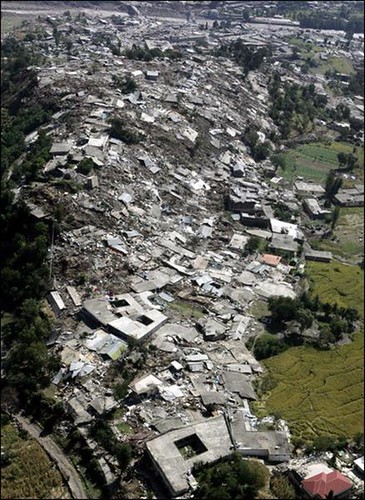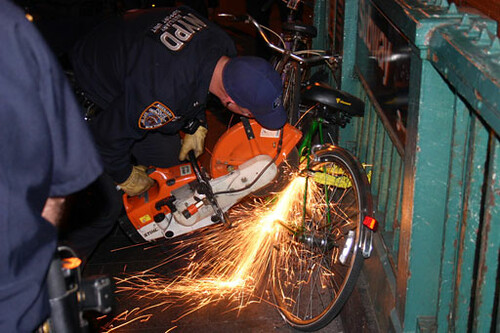Baghdad, Iraq - As the sun set on the holiest day on the Jewish calendar Monday night, the last rabbi in Baghdad sat down for his last Yom Kippur dinner in Iraq: a piece of cake and two glasses of milk.
Yom Kippur ends with a celebratory feast. But there was, Emad Levy confessed, very little to celebrate this year.
Today, barely a dozen members of the 2,600-year-old Jewish community in Baghdad remain to observe Yom Kippur. Most are afraid to gather for holidays, and besides, they figure, how can one rejoice in a place like this?
Emad Levy sat alone in his home on Monday night picking at a dessert-as-dinner, with vicious sectarian killings serving as the background music to the holiday. He had just finished chanting the hopeful lines at the end of the Yom Kippur service. "May we be sealed," he sang plaintively in his bedroom, "for a good year in the book of life."
The capital's only remaining synagogue, a pink and yellow building with no identifying marks, has been boarded up since it was denounced more than three years ago. Most Jews barely leave their homes at all for fear of being kidnapped or executed. "It's like I'm living in a prison all the time," said Levy, who is 41. "I have no future here. I must go out to have a life for myself."
On Sunday night, the eve of Yom Kippur, Levy prepared to begin his fast by nibbling on some cake and watermelon. After the ritual butcher left a few years ago, Levy purchased lambs himself and slaughtered them according to Jewish law. But now he can't buy the animals, because he fears for his life if the merchants in the market spot him and tell others that he is a Jew. Wine is also unobtainable, so on certain holidays he settles for grapes squeezed into water.
Baghdad's power grid, Levy joked, also decided to fast. The electricity cut out on Sunday afternoon and still hadn't come back on more than 30 hours later. On Monday night, after the holiday ended, he struggled to get his generator back up.
None of the city's problems could spoil his Yom Kippur, though. "I have my God and I have my prayers," Levy said. "This is all that is important to me."
He cradled an old Hebrew prayer book in his arms, ritual white fringes hung from his body, and a 25-year-old yarmulke adorned his head. All the Jewish yarmulke makers have fled Iraq, so there is nowhere for him to buy a new one. "What should I do?" he shrugged. "Of course this is not the way Yom Kippur should be.
Not every Iraqi Jew feels that way. Sameer, 40, a construction contractor, said he could not quit his homeland, even though that might mean he never finds a Jewish woman to marry. "This is my destiny. I am Iraqi. I am part of Iraq," he said. "It is okay for me to stay without a wife."
Sameer spoke on the condition that his last name not be printed because he fears for his life. His 33-year-old brother was kidnapped 10 months ago -- although it was not clear whether his religion played a role in his targeting -- and Sameer spends every day searching for him. He has fled his Baghdad home and lives outside the capital in a location he will not disclose for security reasons.
As Levy prepared to end his Yom Kippur prayers, he put special emphasis on the closing line of the service. It is supposed to be accompanied by the blow of the shofar, but Levy didn't have one.
Still, he chanted: "Next year may we be in Jerusalem!"
Levy said he'll settle for London or the Netherlands. Anywhere, really, as long as it's not Iraq.



